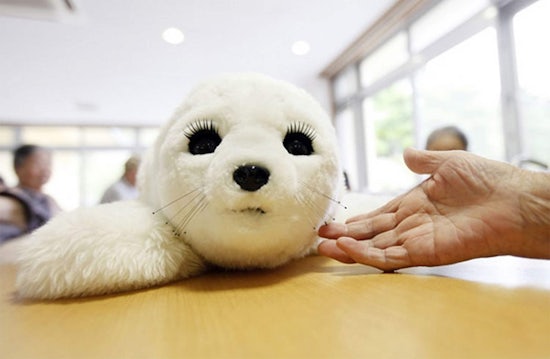Regis’ ‘robotic seal’ trial comforts dementia residents
Australian aged care provider, Regis Aged Care, recently trialled a robotic harp seal in its dementia care program to ease known behaviours such as agitation, wandering and aggression in residents living with dementia.

PARO, a robotic harp seal, is being trialled by Regis Aged Care in its dementia care program to ease known behaviours such as agitation, wandering and aggression in residents living with dementia.
Takanori Shibata, the Japanese inventor of the robotic seal called PARO, flew into Melbourne on last month to meet with Regis’ managing director and chief executive, Ross Johnston, trial manager, Tracy Laethaisong, and staff involved in the trial.
Mr Shibata visited Regis Lake Park in Blackburn and was interested to hear the results of the trial and Regis’ plans to roll it out further to all 47 Regis aged care facilities across Australia.
PARO is quite lifelike with big black eyes that open, close and follow movements. It’s the size of a large cat and weighs nearly 3kg. It charges by an oral electric pacifier and has sensors that detect touch, sound, light, heat, and movement. It reacts to changes in the resident’s mood, physical touch and can recognise its own name.
Results of the trial have exceeded expectations with a 52% increase in wellbeing of the identified residents in the trial. Behaviour management by staff, medication administration and staff intervention all reduced during the trail.
“We'll give PARO to a resident and they will start talking and singing to the seal,” Ms Laethaisong says.
“That encourages them to talk to other people and it'll brighten their mood. We have found agitated behaviour and wandering habits by trial residents to have reduced since PARO was introduced. Regis is extremely excited about the results and the positive effects PARO has had on both residents and staff,” she says.
PARO is currently being used in Australia at schools, hospitals and aged care facilities. After a great result during the initial trial phase, Regis has plans to expand the number of carebots owned to ensure residents in all Regis facilities have access to one.























